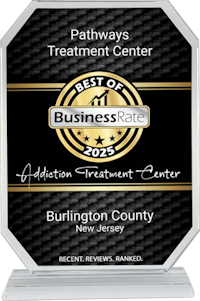Have you ever wondered why some people turn to substances or addictive behaviors during life’s most challenging times? Imagine someone you know carrying the invisible weight of a painful past.
Trauma has a profound way of shaping minds and bodies. For many, addiction becomes an unintended consequence of trying to cope. Understanding the link between trauma and addiction is essential for healing and hope.
What is Trauma?
Trauma is the emotional and psychological response to deeply distressing events that overwhelm an individual’s ability to cope. These events often leave lasting scars, not just mentally but physically as well. Trauma isn’t always caused by one catastrophic incident — it can result from prolonged exposure to stressful or harmful situations.
This is especially true for traumatic experiences during childhood, which play a critical role in shaping the brain’s development. Neglect, physical abuse, or growing up in a household affected by substance misuse can disrupt a child’s sense of safety and stability. Such experiences often lead to heightened stress responses, making it harder to regulate emotions and cope with challenges later in life.
For some, trauma manifests as PTSD. This is a condition marked by flashbacks, nightmares, and intense anxiety. This condition disrupts daily life and can leave individuals feeling isolated and vulnerable. According to research from the National Institute on Drug Abuse (NIDA), those with PTSD are at a higher risk of developing addiction because they seek relief from overwhelming emotions.
What are the Signs of Trauma?
Recognizing the signs of trauma is essential for understanding and supporting those who may be struggling. Trauma can affect individuals in diverse ways, and its symptoms often manifest emotionally, physically, and behaviorally. Here are some common signs:

- Constant worry, nervousness, or feelings of being on edge.
- Persistent low mood, feelings of hopelessness, or crying often.
- Difficulty managing frustration, frequent outbursts, or a short temper.
- Feeling detached, empty, or unable to experience joy.
- Self-blame or overwhelming feelings of inadequacy related to the traumatic event.
- Trouble falling or staying asleep, frequent nightmares, or insomnia.
- Constant tiredness, even after sufficient rest.
- Unexplained physical discomfort often linked to stress.
- A hyper-alert state, as if the body is preparing for danger.
- Overeating or a loss of appetite.
- Avoiding people, places, or activities that trigger memories of the trauma.
- Turning to drugs, alcohol, or other substances as a way to manage distress.
- Withdrawing from friends, family, or social activities.
- Struggling to focus on tasks or make decisions.
- Engaging in dangerous activities without concern for consequences.
- Reliving the traumatic event vividly, as if it’s happening again.
- Unwanted memories or images that disrupt daily life.
- A sense of mistrust or suspicion toward others.
- A skewed self-image marked by self-doubt or self-criticism.
Trauma symptoms vary in intensity and duration. Some individuals may experience acute signs immediately after a traumatic event, while others develop symptoms over time, as seen in Post-Traumatic Stress Disorder (PTSD).
How Trauma Can Lead to Addiction
The connection between trauma and addiction is clear, with studies showing that up to 75% of people in substance use treatment have experienced trauma.
Trauma reshapes how the brain processes stress and emotions. The amygdala, responsible for fight-or-flight responses, may become hyperactive. This leads to a heightened sense of danger. Meanwhile, the prefrontal cortex (which governs decision-making and emotional control) may become less effective. This imbalance leaves individuals feeling overwhelmed and prone to coping through substances.
Trauma also reduces the production of dopamine and serotonin—chemicals essential for mood regulation. This disruption can make drugs or alcohol appealing as they mimic these neurotransmitters, providing temporary relief but increasing the risk of dependence.
Emotional pain from trauma often leads to feelings of fear, helplessness, or shame. Around 34% of people with childhood trauma report using substances as a coping mechanism. These behaviors may offer short-term escape but often spiral into addiction as the brain adapts to the substances. This further impairs its natural ability to manage emotions.
Trauma survivors often experience chronic stress, keeping their nervous systems on high alert long after the traumatic event. This persistent stress depletes emotional resources, which can make it harder to resist substances that offer quick relief. Unfortunately, these substances only mask the symptoms of trauma, perpetuating a cycle of addiction.
Understanding the statistics and science behind trauma’s impact on addiction highlights the importance of addressing both issues simultaneously for effective recovery.
The Impact of Self-Medication
Self-medication is one of the most common reasons trauma survivors develop addictions. It offers a temporary escape from emotional pain but often leads to a new set of problems.
Imagine dealing with constant flashbacks or feelings of worthlessness — it’s no wonder many people seek relief. Substances provide an artificial sense of calm or euphoria, helping individuals temporarily shut out distressing thoughts or memories. However, numbing the pain of trauma doesn’t resolve the root cause. Over time, this coping mechanism can lead to physical and psychological dependency, further compounding the problem.
For many trauma survivors, chronic stress compounds the problem. The body remains in a heightened state of alertness, making it difficult to relax or focus on positive aspects of life. Turning to substances can seem like the easiest way to manage overwhelming stress. The downside is that while substances may offer a short-term fix, they can ultimately damage the brain’s ability to produce natural “feel-good” chemicals like dopamine. This can lead to deeper emotional lows.
Is Recovery After Trauma Possible?

Recovery from trauma and addiction is not only possible, but achievable with the right support and approach. Statistics show that individuals who engage in trauma-informed therapy are 50% more likely to maintain long-term sobriety compared to those who do not address underlying trauma. Recovery involves healing both the psychological wounds caused by trauma and the behaviors associated with addiction.
Therapy modalities such as Cognitive Behavioral Therapy (CBT) and Eye Movement Desensitization and Reprocessing (EMDR) have proven effective in treating trauma. CBT helps individuals identify and change thought patterns that contribute to stress and substance use, while EMDR focuses on reprocessing traumatic memories in a way that reduces their emotional impact.
Learning healthy ways to manage stress and emotions is critical for recovery. Mindfulness practices (such as meditation, yoga, and breathing exercises) help calm the nervous system and reduce triggers. Engaging in physical activities like walking or swimming, or exploring creative outlets like art and journaling, can serve as positive alternative activities to harmful coping behaviors.
Trauma often affects not only the individual but their relationships as well. Family therapy can rebuild trust and improve communication between family members, helping to create a supportive environment for recovery. Research indicates that involving family in treatment improves outcomes by strengthening the individual’s support system. It can also help in overcoming shared traumas.
Recovery is rarely achieved alone. Building a strong network of friends, support groups, and recovery communities offers vital encouragement and accountability throughout the recovery journey. Groups like Alcoholics Anonymous or Narcotics Anonymous offer a safe space to share experiences and find guidance from others on similar journeys.
Trauma-informed care is essential for effective recovery. It ensures that treatment providers understand the link between trauma and addiction and tailor their approaches to address both. This holistic approach increases the likelihood of long-term healing and helps individuals regain control of their lives.
Recovery is a process that takes time. While the path to healing may not always be linear, persistence and commitment to self-care can lead to lasting transformation.
Recovery after trauma takes time, effort, and resilience. With the right combination of therapy, coping mechanisms, and support systems, individuals can break free from the cycle of trauma and addiction, reclaiming a life of health, balance, and peace.
Heal From Addiction with Holistic Treatment at Pathways Treatment Center
If you or someone you love is struggling with addiction and the lingering effects of trauma, Pathways Treatment Center is here to help. We offer holistic treatment plans that focus on healing the mind, body, and spirit. Our approach integrates evidence-based therapies with mindfulness practices, providing a safe space for individuals to uncover and heal from their pain.
At Pathways, we believe recovery isn’t just about overcoming addiction, but creating a fulfilling life. Contact us today to find out how we can support your journey.



